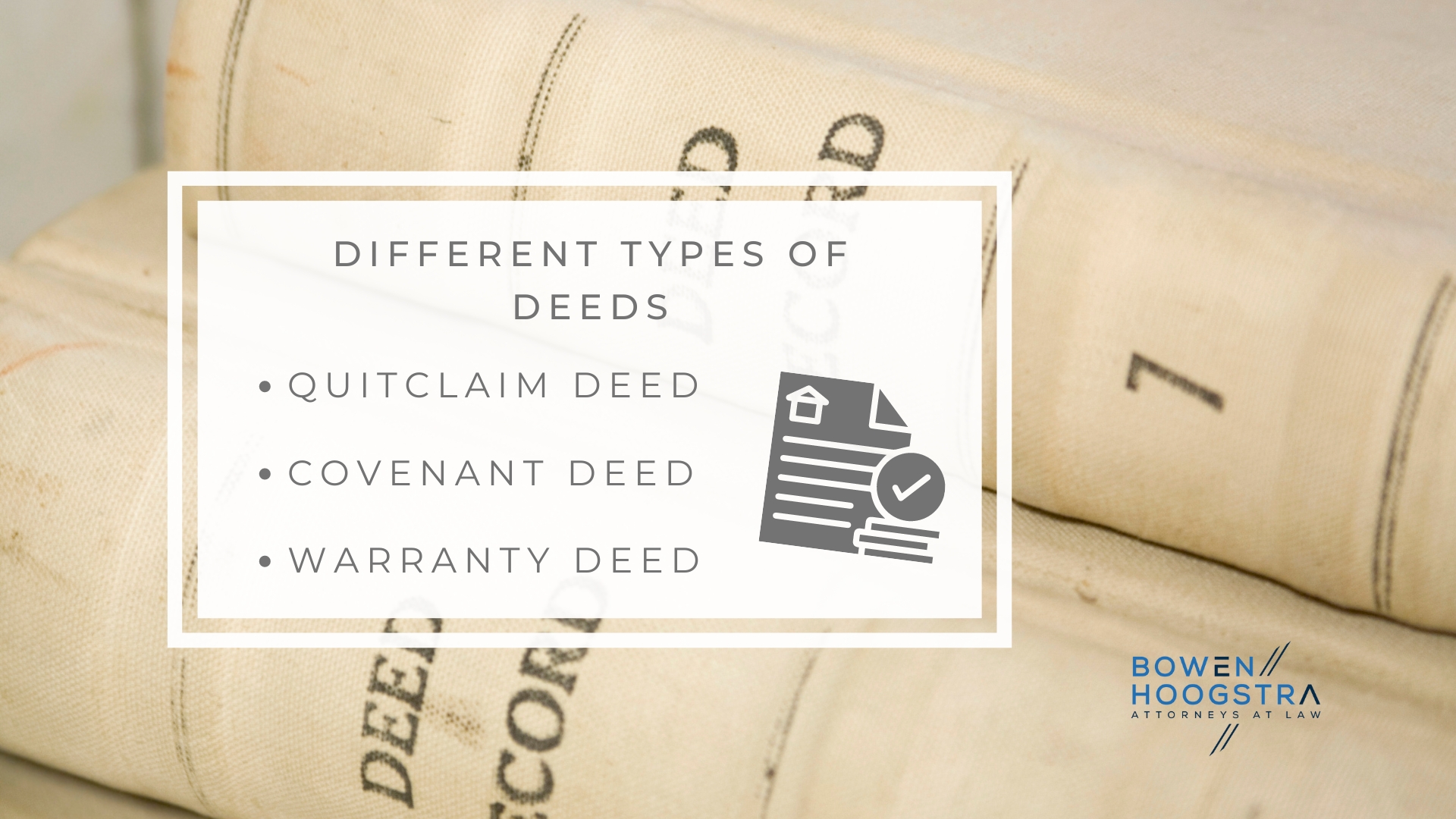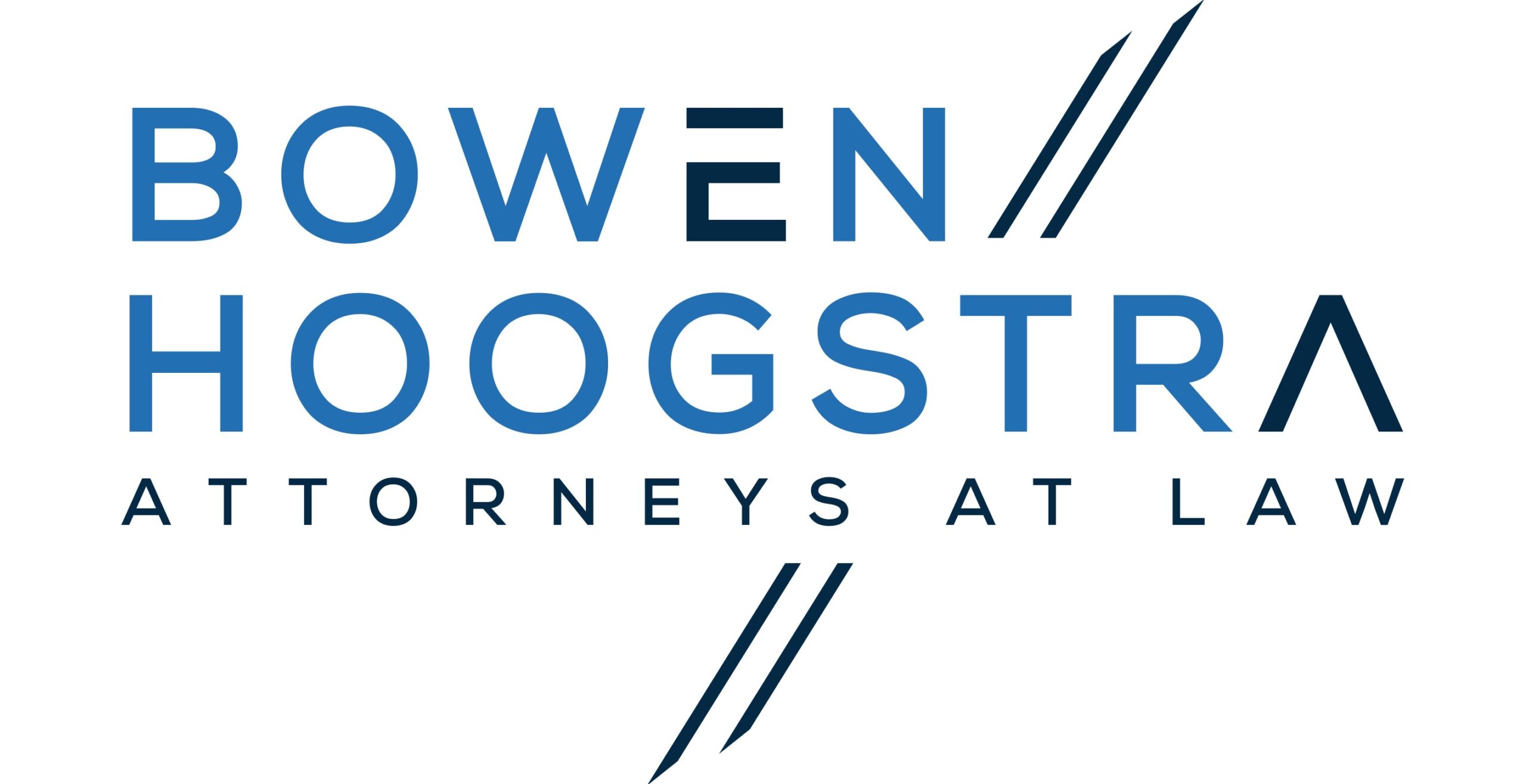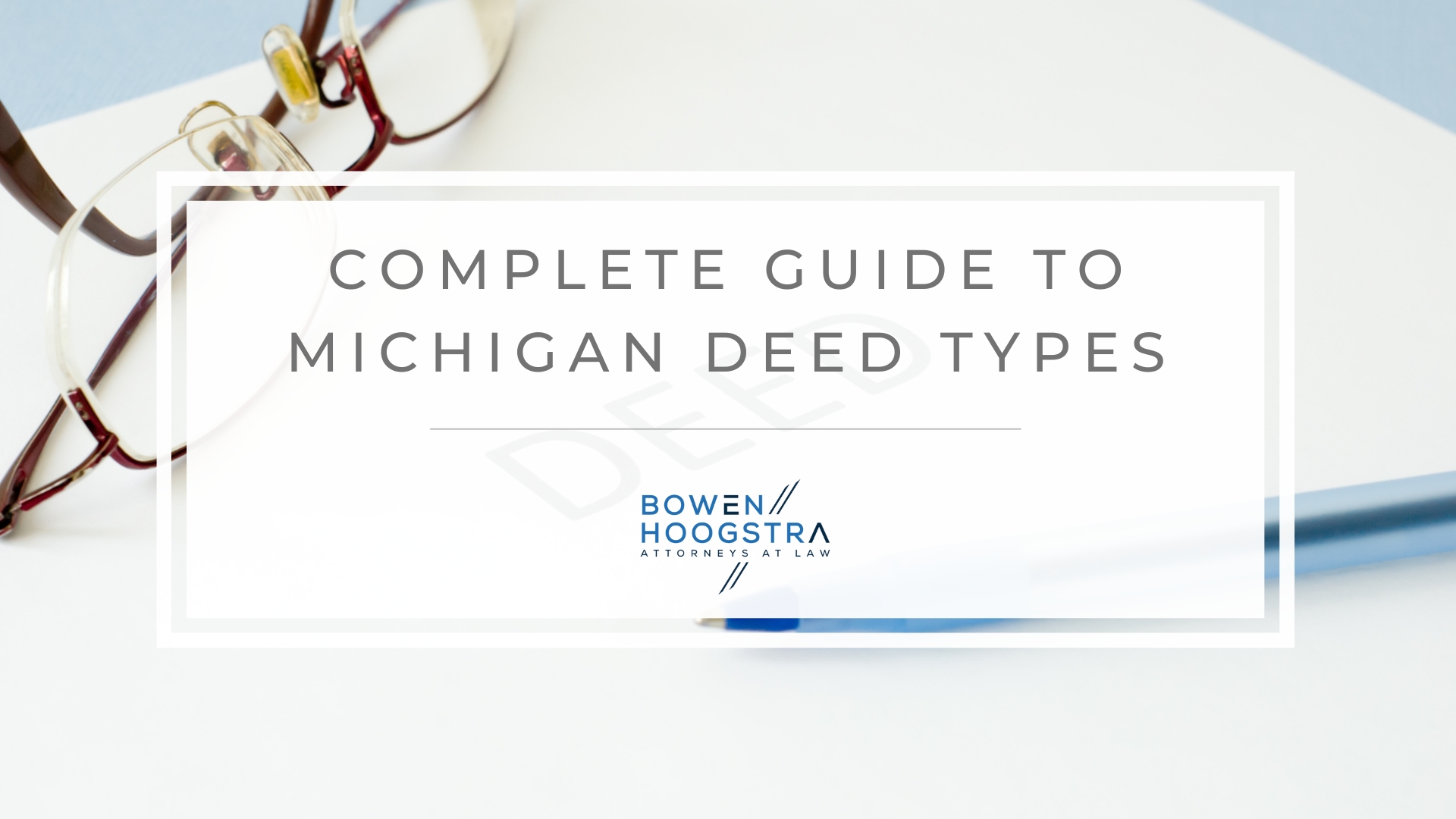In real estate, a deed is an instrument used to convey the title of a property, either by selling, gifting, or other means of transfer. For instance, if you decide to sell your home to another person, a deed is necessary for the sale to be considered legal. The deed must contain all the required elements, including the name of the parties involved, the description of the property, and other important information.
There is more than one type of deed in Michigan, with each having a different kind of guarantee it provides to the parties involved in the property transfer. In this article, you’ll get to know each type of Michigan deed and learn the difference between them.
Overview of Types of Deeds in Michigan
A deed is a document required for any transfer of property ownership or interest between two parties. Generally, the parties involved in the property transfer include the grantor and the grantee. The grantor is the owner transferring the real estate, while the grantee is the individual or organization receiving the property.
In Michigan, a deed must be signed by the grantor, notarized, and recorded to the Register of Deeds for the property transfer to be considered valid and effective. In cases where the property has two or more owners, both (or all) of them must affix their signatures to the deed before it can be legally transferred to the grantee.
There are three main types of deeds used in Michigan that vary on the warranty they provide to the parties involved. These deeds include quitclaim deeds, covenant deeds, and warranty deeds. Depending on the kind of transfer, one type of deed can be more beneficial than the other.
Different Types of Deeds

Quitclaim Deed
Among the Michigan deeds, quitclaim deeds provide the least protection to the grantee. A quitclaim deed does not guarantee a clean title, which means that the grantor is not held responsible for any claims or interest against the property transferred.
Despite having no guarantee, quitclaim deeds are still considered legal in Michigan because there are instances when the grantee won’t need protection over title problems. Such cases usually happen when the property is transferred to:
- a family member;
- an ex-spouse after divorce;
- a charity or a friend;
- a living trust; or
- a business owned by the grantor.
Covenant Deed
Unlike quitclaim deeds, a covenant deed provides a certain level of protection to the grantee. A Michigan covenant deed ensures that the property is free from title problems only within the period the grantor became the owner. The grantor is not liable for any hidden or pre-existing issues on the property before he/she took ownership.
A covenant deed is the most convenient and practical choice to transfer a title for a grantor who has no intention of occupying the property and has never utilized it in the past. In foreclosures, for example, a covenant deed can expedite the sale by eliminating the need for the bank or financial institution to resolve title problems that existed before the foreclosed property was taken from the previous owner.
Warranty Deed
A warranty deed provides the highest form of protection to a grantee with its unlimited warranty. This warranty extends back through the property’s history, addressing any problems with ownership even before the grantor acquired the property. Warranty deeds guarantee that the title has no liens, debts, or encumbrances, and the grantor will cover any title issues that may arise in the future.
The guarantees that a Michigan warranty deed provides are called covenants. Generally, there are six covenants of title. These are the following:
- Covenant of Seisin. The grantor legally owns the property.
- Covenant of Right To Convey. The grantor has the right to transfer the title of the property.
- Covenant Against Encumbrances. The property has no undisclosed problems or encumbrances.
- Covenant of Warranty. The grantor is liable to defend the grantee from any interest or claims against the property.
- Covenant of Quiet Enjoyment. The grantor ensures that the grantee can use the property without interference from other parties.
- Covenant of Further Assurances. The grantor will resolve any arising issues concerning the ownership of the property.
We’re Here to Help You
Property transfers involve legal processes that can be complicated for an individual without adequate knowledge of the law. Hiring a competent property lawyer ensures that the ownership transfer is carried out smoothly. Additionally, property attorneys can provide legal advice to help you decide which type of deed can benefit you the most.
Bowen Hoogstra Law has the best Michigan property lawyers to assist you during the title transfer process. From preparation to completion, we guarantee that property transfer is managed appropriately in accordance with Michigan laws. Call us now at (231) 726-4484 or contact us here.

